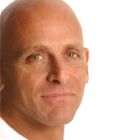Relationships
Enough Is a Feast: The True Meaning of Radical Self-Care
Shelly Tygielski is a radical self-care expert and creator of Pandemic of Love.
Posted January 3, 2022 Reviewed by Davia Sills
Key points
- Self-care is not about mud baths, exfoliation, and chai lattes. It's about sharing what we have to give.
- Every single person has something they can offer, and generosity is always a two-way street.
- Enough is a feast. When we stop hoarding, and open our hearts, we realize that we have enough to give and plenty of room to receive.
Shelly Tygielski is an internationally recognized expert in “radical self-care” and the author of Sit Down to Rise Up, which was praised by President Joe Biden for “saving people’s lives... and giving them hope.” She is the founder of the global grassroots mutual aid organization Pandemic of Love and a trauma-informed mindfulness teacher whose work has been featured by numerous media outlets, including CNN Heroes, The Kelly Clarkson Show, CBS This Morning, The New York Times, and The Washington Post. Named one of the “12 Powerful Women of the Mindfulness Movement” by Mindful.org, she teaches self-care and resilience at organizations around the world.
Mark Matousek: What do you mean by radical self-care?
Shelly Tygielski: The term “self-care” has been hijacked by the industrial wellness complex that we’re living in. Self-care is not bath bombs, mud masks, or chai lattes. Self-care is about creating equity in this world. Ensuring that our circles of influence are strong enough.
One of my mantras is: Enough is a feast. The question is, how do we get there and make sure that everybody really has enough? We know that there is more than enough to go around for every sentient being on this planet. Yet we often fail to pass it around. Like hoarders.
The modern notion of self-care was actually born out of community survival struggles, the civil rights movement, the feminist movement, communities that did not have access to life’s basic requirements, health care, equal rights, and so on. Then in the ’80s and 90s, self-care went from survival to thriving.
MM: In self-centered ways?
ST: Yes. I’m trying to get us back to the point of making sure that everybody is surviving. If you’re going to yell at people to pull themselves up by their bootstraps, you have to make sure that they have boots. When I talk about self-care, I’m referring to the self-being that is larger than we are. Taking care of one another.
Self-care is a communal effort, not simply an individualistic pursuit. Communities of care are based on the principle that every single person in that community has something that they need, regardless of their socioeconomic status. And every single person has something they can offer.
MM: So love and empathy are the essence of self-care?
ST: Yes. The essence of everything is love.
MM: What do you say to people who are feeling beleaguered during the pandemic, as if they can’t help somebody else because they barely have enough for themselves, materially or empathically?
ST: I say that because you don’t have enough for yourself, you should give more. It’s like when somebody goes to their teacher and says, “I don’t have five minutes to meditate,” and the teacher says, “You should meditate for ten.” If you want more love in your life, you give more love. If you want more kindness in your life, be kind. It’s a simple notion. The energy we put out is reflected back to us.
MM: Tell me about Pandemic of Love.
ST: It is a mutual aid community that we built at the onset of the pandemic. We’ve been able to match over two million people at this point and transferred close to $60 million. We are not a non-profit; we are a non-profit disruptor. We don’t have a bank account. We don’t take money from people. We make connections between a person in need and a person who has a need that they can fulfill.
We connect on a very human level so that they can have a conversation. Oftentimes, the person who’s the donor thinks, “I don’t need anything,” and yet they’re able to be gifted by somebody who thinks, “I have nothing to give.” It’s mutually beneficial. It’s not a one-way transaction.
I had one donor named Eileen who said, “I don’t care. Just match me with anyone.” She was matched with a woman named Christine in Mobile, Alabama, but Eileen was not happy about this. She actually sent us a scathing letter to say, “How dare you match me with somebody who voted for somebody who wants to harm me and who wants to dismantle everything that I have worked for as a social worker, as an activist, my entire life?” She was very upset. She included her phone number. This letter got forwarded to me, and I decided I was going to call her and have a discussion with her, so I did.
I asked her to just pause for a moment and think about what would happen if she didn’t transact with Christine, with whom she’d already had a conversation. “If you don’t transact with her, there’s the potential that you’re going to reaffirm for her everything she thinks about a New York hippy liberal Jew, right?” I asked her. I said, “You may be the only gateway for her to change her mind about all of those narratives, all of that conditioning that she might have as a person that probably has never left that place or been to New York City.” Anyway, I didn’t hear back from her for months.
About a month before the November election, I received a beautiful email from Eileen, telling me how she did wind up transacting with Christine and how she continues to be in touch with her. On a biweekly basis, she sends her a Walmart gift card in an e-card so that she can supplement what she’s getting from unemployment and help to feed her children.
They’ve become friendly. Eileen talks to Christine about things that Christine really didn’t know a lot about, like Eileen’s parents being survivors of the Holocaust. They also talk about children, especially Christine’s daughter, who loves to read. For Eileen, this was like her Trojan Horse. She asked Christine if it was okay to send her daughter things to read, and she said, sure. “I sent a huge box of books to her, including things about diversity and so on that she would never have the opportunity to read in her local library or at her local schools. Certainly not things that her mother would have bought for her.” At the end of the letter, Eileen writes, “How many Christines have I avoided my entire life?”
MM: Haven’t we all? But what can we do to better connect with others?
ST: Mindfulness can help with this opening process. A lot of people think that meditation is supposed to make us more comfortable. Actually, it’s about being more comfortable with discomfort, being able to sit with discomfort and not run away from it. Knowing that everybody is broken can make us all feel whole.
There’s not one human being on this planet who doesn’t have trauma. When we actually recognize that and understand that the only way we’re going to be able to fill in those gaps is by allowing other people to be the salve to our wounds—and realizing that we hold the salve to other people’s wounds—things will change. When our hearts are cracked open, when we’re in our most vulnerable states, those are the times that we can give with the most love.




